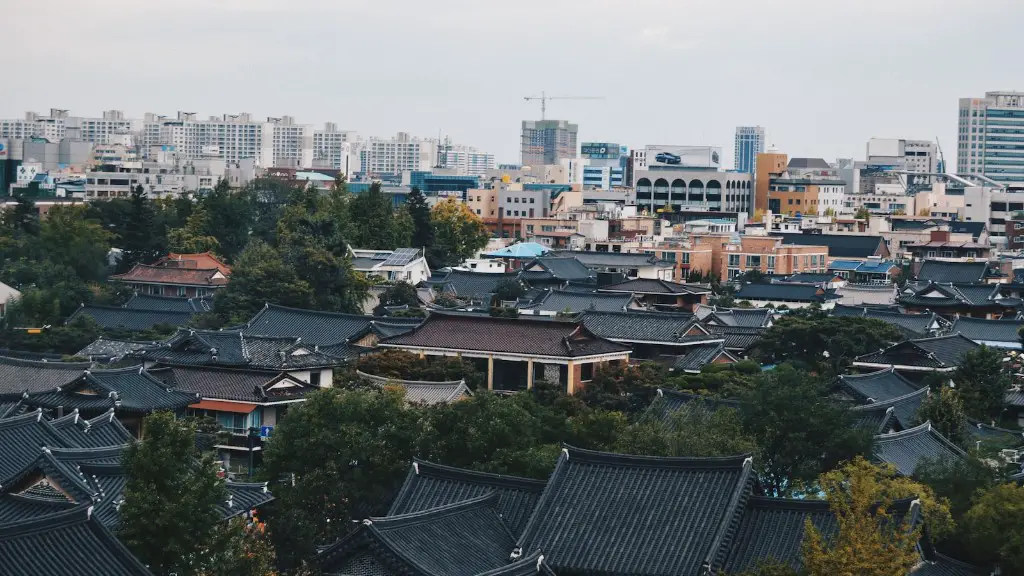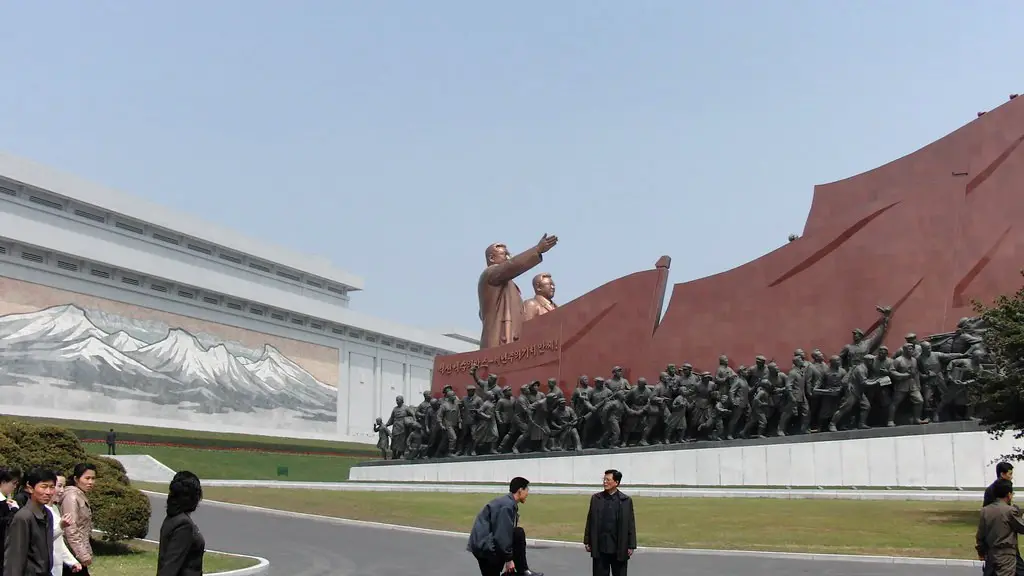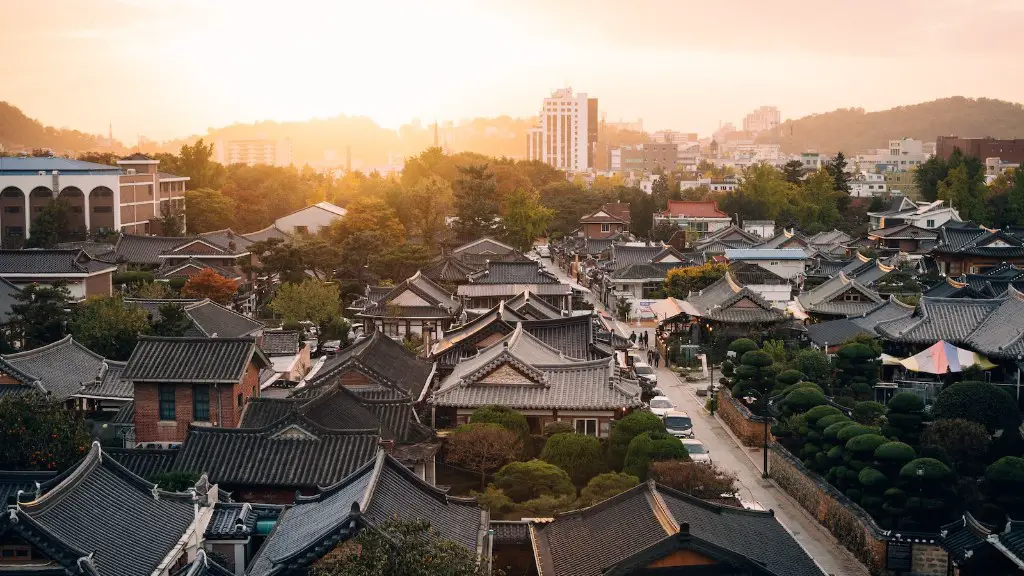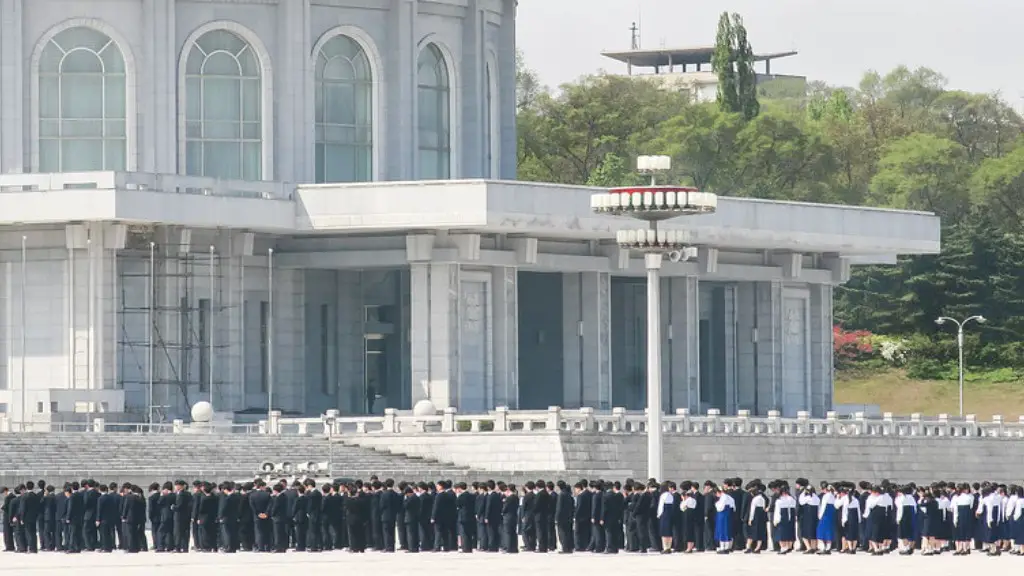Economic Situation
North Korea is one of the poorest countries in the world, due partly to its reliance on foreign aid from China and Russia, and a long-standing economic embargo from the United States. The country’s economy is largely isolated from the global economy and largely based on agriculture, although a few large-scale industrial projects, such as a coal and steel plant in the city of Chongjin, remain. The country is estimated to have an economic output of around $25 billion, which is minimal compared to other nations in the region. The economic embargo has hit the country hard, leading to severe shortages of food, fuel, and basic goods in many parts of the country. Gradual reforms are taking place, including permitting a small number of citizens to pursue private economic activities, but there is still significant economic hardship.
Political Situation
North Korea is ruled by the Workers’ Party of Korea, which claims to be guided by the principles of Marxism-Leninism. The head of state is the supreme leader, Kim Jong Un, who is also the chairman of the National Defence Commission and commander-in-chief of the country’s military. The country is officially a one-party state, although a few small opposition groups do exist – however, they operate in very limited capacity. The government also implements a heavy system of propaganda and censorship in order to control the population and suppress any criticism or dissent.
Media Access
Due to the oppressive nature of the North Korean government, the media environment is highly restricted. Only one state-run television channel and newspaper exist in the country, and citizens have very limited access to foreign media. Most citizens are cut off from global news and events, and are only exposed to the government’s carefully censored version of the news. A few foreign outlets, such as the U.S. government-funded Radio Free Asia, have limited reach in the country, but most of the news of events outside of North Korea is unknown to citizens.
Societal Makeup
In North Korea, society is highly stratified, with a large distinction between the ruling elite and the general population. The ruling elite, who are mostly members of the Kim family, enjoy a comfortable lifestyle, with large houses and access to a wide range of goods, while the general population has limited access to basic goods. The population is also highly divided along ideological lines, with those loyal to the regime being rewarded and those who are perceived to be critical of the regime often facing severe punishment.
Infrastructure
Much of North Korea’s infrastructure has been neglected due to the country’s isolation and lack of investment. Many of the roads in the country are in a state of disrepair, and public transport is limited outside of the capital Pyongyang. The electricity grid is also unreliable, with frequent power outages being reported in some areas. Telecommunications networks are limited to landlines, and mobile phones and the internet are both extremely restricted and tightly monitored by the government.
Education
North Korea’s education system is largely state-controlled and aims to instill loyalty towards the state in students. The system focuses on indoctrination and propaganda, rather than academic learning and critical thinking. Many students struggle to receive a basic education due to the harsh economic conditions, limited access to materials and resources, and the poor infrastructure. Educational opportunities are also scarce for disabled children, who are marginalized and often face discrimination.
Human Rights
North Korea has been widely criticized for its human rights record. Human Rights Watch reported that the government undertook a campaign of political repression in 2014, including arbitrary arrests, torture, and a lack of due process. The government also has a history of using exile and imprisonment as a way to silence political opponents. Freedom of assembly, speech, and the press are all heavily restricted, and there have been reports of public executions for those found guilty of political “crimes”.
Culture and People
North Korea is home to around 24 million people, who mostly belong to the ethnic group known as Koreans. The culture is largely centred around the government and its ideology, although, since the 2000s, there has been a slight shift in attitudes. A few aspects of traditional Korean culture, such as music, sports, and traditional cuisine, still remain popular. Despite the political situation, citizens have developed a strong sense of national identity and pride, and patriotism can be seen in everyday life.
Economy Impact of Sanctions
North Korea has been subject to multiple rounds of economic sanctions from the United Nations and the United States. These sanctions aim to restrict the export of goods and financial resources from the country in order to put pressure on the government to change its policies. While it is unclear how effective the sanctions have been, it is evident that they have had an impact on the country’s economy and the everyday life of its citizens. The sanctions have caused a shortage of basic goods, making life for ordinary citizens increasingly difficult.
Geopolitical Relationships
North Korea has had a strained relationship with most of its neighbours and the rest of the international community due to its nuclear weapons program, provocative actions, and human rights violations. However, it has close ties with its primary ally, China, which has provided economic and diplomatic support to the country. The relationship between North Korea and South Korea has been complicated, as the two countries are technically still at war. Relations have improved since the 2018 inter-Korean summit, with South Korea sending aid to the North in an effort to improve ties.
Military Presence
North Korea has one of the largest militaries in the world, with an estimated 1.19 million active personnel. The military has been a cornerstone of the country’s life since the Korean War, and the government places huge emphasis on loyalty to the armed forces. Military spending forms a large part of the country’s budget and the forces are heavily involved in propaganda and ideological education. North Korea is also estimated to have a stockpile of nuclear weapons, although recent denuclearization talks with the United States have shown promise.
Thought Control
The North Korean government has a long history of censoring its citizens’ thinking, sentiments, and beliefs. To prevent criticism, the government uses slogans, propaganda, and censorship to control what citizens learn and can express. The state has robust surveillance of citizen’s phones and computers, and censorship of foreign media. In addition to these methods, the government has a three generation punishment policy in place to ensure that anyone critical of the state (or their family members) will be punished.
Suppression of Dissent
North Korea has a severe policy of suppressing dissent, with punishments ranging from detention to public execution. The government systematically researches the backgrounds of everyone in the country in order to identify any critics or potential opponents – immediately arresting and constricting anyone deemed to be a threat to the regime. Several human rights organizations have documented cases of citizens being imprisoned for simply watching South Korean TV shows. The government often uses public executions to send a message of deterrence and fear to the general population.
Living Conditions
Life for citizens in North Korea is hard and harsh, with most struggling to make ends meet. Poverty levels are high, with the UN Food and Agriculture Organization estimating that around 10 million people don’t get enough food to lead a healthy and active life. Access to healthcare is also limited, with a severe shortage of medical supplies and equipment. Human Rights Watch reported that instances of disease, such as tuberculosis and malaria, have increased due to the harsh conditions suffered by many citizens.
Education Restrictions
Education in North Korea is heavily controlled by the government, with citizens only learning what the state deems appropriate. School books in the country are heavily censored, with references to international affairs, human rights, and foreign culture often removed. The curriculum also focuses heavily on propaganda and state ideology, with an emphasis on loyalty to the ruling elite and state officials. Students are also heavily monitored and reported on, with any signs of dissent leading to punishments for both the student and their family.
Lack of Employement Opportunities
North Korea’s economy is heavily reliant on agricultural production, with little prospects for employment or job opportunities. Most citizens are heavily restricted from even leaving their local area and are largely barred from pursuing private business activities, with only a select few allowed to conduct such ventures. As a result, many citizens are confined to dead-end jobs in farms, state-run businesses, or factories with little chance of advancement or improvement in their quality of life.
Access to Information
North Korea has a strict censorship regime in place regarding access to information. Citizens are strictly prohibited from accessing any foreign media, with the only source of news being the heavily censored state-run publications. Independent media outlets, including the internet, mobile phones, and satellite TVs, are heavily monitored and restricted. In recent years, the government has tightened its grip on media access, with stories emerging of those found with illegal media being sent to prison camps for long prison sentences.




